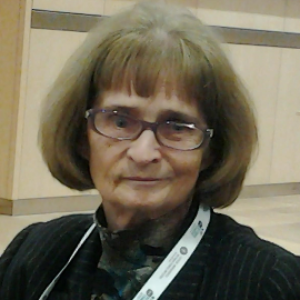Title : New lead-free perovskite materials on the base of sodium-potassium niobate and sodium-bismuth titanate oxides
Abstract:
Lead-free perovskite oxides based on perovskites (K0.5Na0.5)NbO3 (KNN) and (Na0.5Bi0.5)TiO3 (NBT) were intensively studied last ten years in order to develop materials promising for applications in capacitors, piezoelectric, electrocaloric and other devices.
We studied structure, microstructure, dielectric and ferroelectric (FE) properties of compositions from Morphotropic Phase Boundary (MPB) in the KNN-BT and NBT-BT systems additionally modified by various acceptor and donor cations in A- and B-sublattices (Li+, Ag+, Ba2+, Ca2+, La3+, Co2+, Fe3+, Zr4+, Sb5+, W6+) and using overstoichiometric additives with low melting temperatures (LiF, NaCl, KCl).
Ceramic samples prepared by the two-step solid-state reaction method were characterized by the X-ray Diffraction, Scanning Electron Microscopy, Second Harmonic Generation (SHG), and Dielectric Spectroscopy methods.
Unit cell parameters changes were observed in modified ceramics depending on radii of substituting cations.
In KNN-based systems characteristic FE polymorphic phase transitions were reveled using the SHG and dielectrics methods near TPT~450 K and Curie temperature TC ~650 K. The TC values increased in Li- modified samples, decreased in K- and Ag-modified samples, while TPT values decreased, and both TC and TPT decreased in La and Sb-doped samples.
In NBT-based samples anomalies in dielectric permittivity near ~450 K and peaks at Tmax ~ 600 K were revealed. The phase transitions near ~450 K exhibit well-defined relaxor behavior, characteristic of NBT and due to the presence of polar FE nanoregions in the nonpolar matrix.
Some compositions are characterized by increased values of dielectric permittivity and spontaneous polarization at the room temperature confirming prospect of their functional properties improvement.
Nonmonotonous dependences of the dielectric and ferroelectric properties of the samples studied were revealed. The increased values of dielectric permittivity and spontaneous polarization at the room temperature of some modified compositions confirm prospect of their piezoelectric and electrocaloric properties improvement


